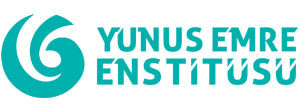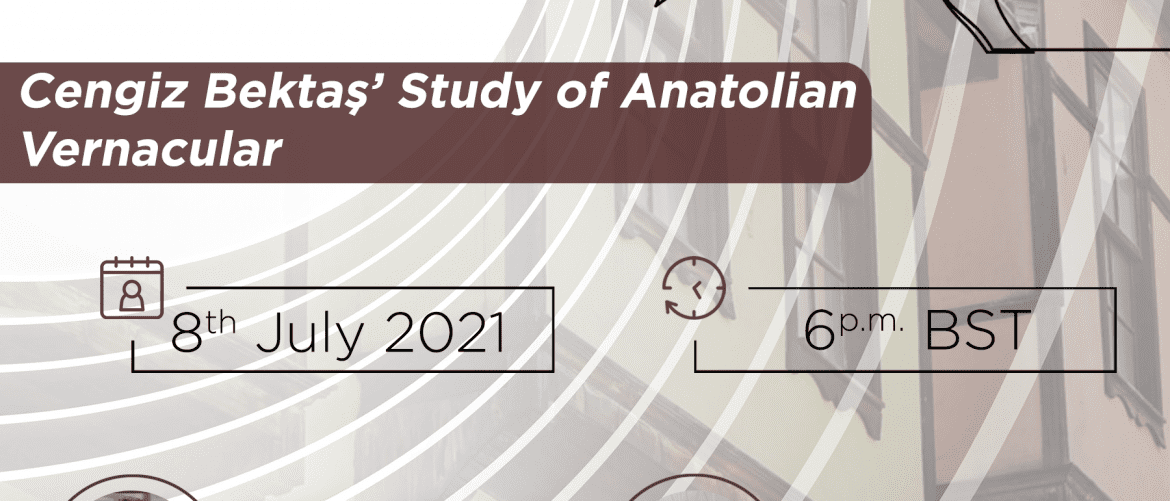Architect Mert Eyiler on Cengiz Bektaş’s Study of Anatolian Vernacular
For centuries, Turkey’s culture has uniquely evolved through its negotiation between conserving its cultural heritage and adapting to global westernisation and modernisation movements. It is through a society’s cultural manifestations, such as art and architecture, that cultural social, structural, political, and economic change can be traced. In this vein, Yunus Emre Institute in London is hosting award-winning architect Mert Eyiler on Thursday 8th July, 6pm (BST) for its second seminar of its “Architecture and Design Talks” series taking place online. Eyiler will be discussing Anatolian Vernacular and Cengiz Bektaş, one of a few architects to reinterpret Turkish vernacular housing traditions.
The Anatolian Vernacular architecture, which offers a window into the region’s traditions and heritage, has been an important source of modernist architecture. The 20th century Swiss architect Charles-Édouard Jeanneret, also known as Le Corbusier, in his last book “Le Voyage d’Orient”, described in detail the material and volumetric expression that he found in this vernacular from the Turkish lands. It was later in the work of Turkish architect Sedad Hakkı Eldem, in his seminal “Turkish Houses” book series, that this Anatolian Vernacular became “codified” in a typological catalogue of architectural drawings.
Yet it was only with the architectural theories of the architect Cengiz Bektaş that the Anatolian Vernacular architecture became described in the context of the social and cultural from which it was based. Bektaş, in a series of books and drawings from the 1970s-1980s focusing on select geographies in Anatolia, was able to outline the people and architecture of Anatolia in a holistic way. Eyiler will be exploring Bektaş’s work and findings as well as its influence on his own designs.
Mert Eyiler completed his undergraduate studies at Anadolu University and Istanbul Technical University, and his master’s degree at Mimar Sinan Fine Arts University. He worked with Nevzat Sayın at NSMH between 1996-2006 and founded his own practice, MeMA, in 2007. He taught architectural design studios at Yıldız Technical University, Istanbul Kultur University, Istanbul Bilgi University and Bahçeşehir University. After his various national and international successes as an emerging architectural practice, he moved his practice to the UK and established MeMALoNDoN. Having achieved many national and international successes such as the Arkitera Young Architect Award and “40 Under 40”, Eyiler became one of the TEDxKaş speakers held with the theme of “Escape to the Future” in 2018.
Gökhan Karakuş is a designer, curator and writer concentrating on the intersection of design and architecture. Educated in architecture at Vassar College and Columbia University in New York, he later founded Emedya Design in Istanbul Turkey specialising in digital and computational design. As a writer Karakuş has written for Architectural Review, Architects’ Journal, Wallpaper and Detail as well as Editor of Natura magazine on Architecture and Interiors in Natural Stone. Karakuş currently teaches visual design and architecture at Medipol University in Istanbul and previously was lecturer and guest critic at architecture and design schools such as Istanbul Technical University, Pratt Institute School of Architecture, University of Pennsylvania Stuart Weitzman School of Design, and Politecnico di Milano. Karakuş has curated exhibitions on design and architecture at venues such as the London Design Fair, the London Design Festival, ArchMoscow, Venice Architecture Biennial, Istanbul Design Week and Istanbul Design Biennial.
About the Architecture and Design Talk series:
This new seminar series will map the development of Turkish culture through exploring the shifts within its architecture and design over the last two centuries. Contemporary figures in design and architecture will be invited to discuss their own work in regard to Turkish cultural heritage as well as their views on their 20th century modernist predecessors. The audience are welcomed to engage with the guest speakers during Q&A sessions at the end of the talks.
To sign up, please visit our Eventbrite


Comments are closed.